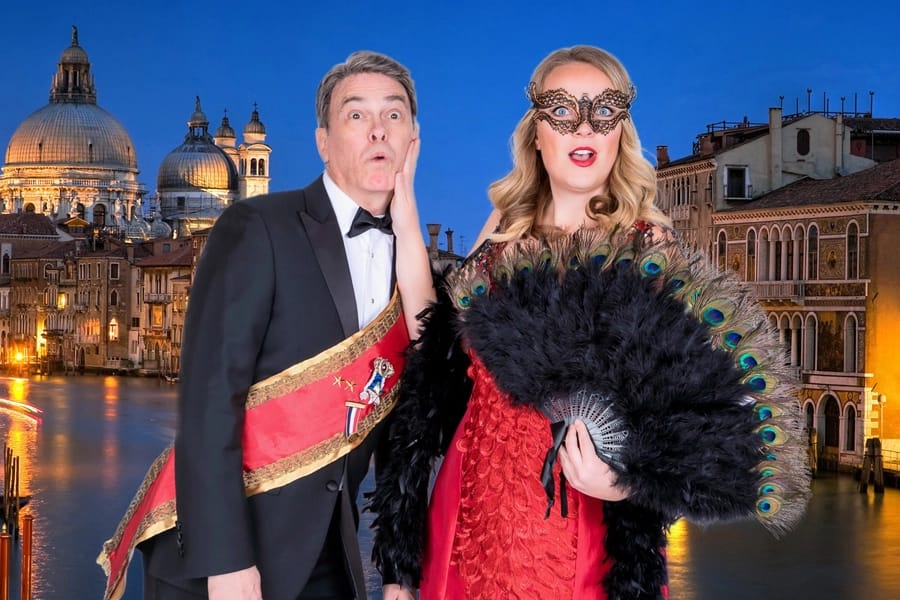
articles / Pop Culture
Vienna Visits Venice in San Jose

There are masks, new dresses, and mistaken identity at the Carnival, in Johann Strauss’s A Night in Venice in the Lyric Theatre of San Jose‘s production that opens Saturday night and runs through July 1st. It’s a new work for the company, and one that stage director Michael Morris and musical director Bruce Olstad didn’t know either. The operetta is sung in English, with supertitles, and is filled with waltzes that bring to mind Vienna more than the titular Venice.
There’s more information about the production at the Lyric Theatre‘s website.
“We were also unfamiliar with it, and started looking up for information,” Morris says. “There was unbelievably very little – with the exception that it was debuted in Berlin, and three weeks later went to Vienna. Between that time, the score was fabulous, but the script was horrible, so they had to actually re-write the whole thing in three weeks.” The text has been revised many times since then, including thinning out some of the extraneous plot lines and confusions, as Bruce Olstad says: “The story itself was so complicated in its original form, that’s why it flopped on its opening night, not because of the music, which is charming from beginning to end, but because of the story. So our version has really pared it down to a character-driven, intimate piece that’s easy to follow, we think, we hope.” The plot revolves around several women who all plan to attend a masked ball thrown by the Duke during the Carnival season in Venice. Lyric Theatre is ending its season with the work by Strauss, written almost a decade after he wrote Die Fledermaus. Morris says in the 17 productions he’s directed for Lyric (mostly as musical director) he’s been impressed with the caliber of the performers: “They are able to draw really wonderful talent. I mean, this show is a fantastic example of the talent they draw. A fabulous chorus, and everyone is a volunteer… We are professionals, but the majority of the work we do is with the amateur musician or the amateur performer. And I’ve always felt that that in many ways is much more exciting, much more important. I admire the stamina, and the drive, and the willingness to learn, and the real love of the art that the amateur brings to it.”






